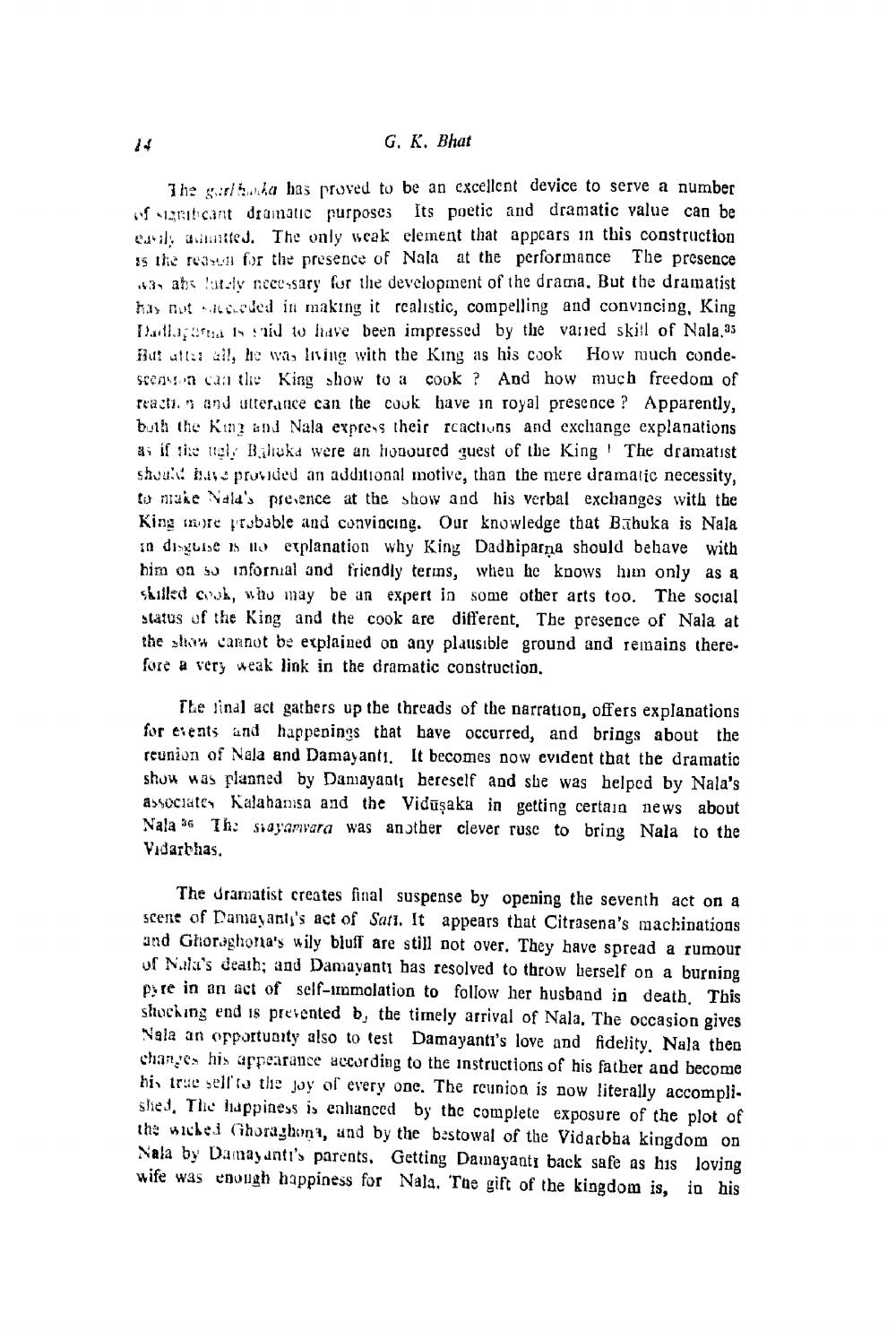________________
G. K. Bhat
he r ha has proved to be an excellent device to serve a number oferticant dramatic purposes Its poetic and dramatic value can be
al: usted. The only weak element that appears in this construction is the reason for the presence of Nala at the performance The presence
3. at turly necessary for the development of the drama. But the dramatist hay out coucd in making it rcalistic, compelling and convincing, King Dlhouse l aid to have been impressed by the vaned skill of Nala.35 But ulla4il, he way living with the King as his cook How much condeSecas a car the King show to a cook? And how much freedom of reacti. . and utterance can the couk have in royal presence ? Apparently, buth the Kin? and Nala express their reactions and excliange explanations di ife telBaluka were an logoured guest of the King! The dramatist should provided an additional motive, than the mere dramatic necessity, to maic Nald's presence at the show and his verbal exchanges with the King e probable and convincing. Our knowledge that Babuka is Nala in disguise is 110 ctplanation why King Dadbiparņa should behave with him on su infornial and friendly terins, when he knows hin only as a skilled awk, bu may be an expert in some other arts too. The social status of the King and the cook are different. The presence of Nala at the short cannot be explained on any plausible ground and remains there. fure a very weak link in the dramatic construction.
The final act gathers up the threads of the narration, offers explanations for esents and happenings that have occurred, and brings about the reunion of Nala and Damayanti. It becomes now evident that the dramatic shuu was planned by Damayanti bereself and she was helped by Nala's axsociato Kalahansa and the Vidūşaka in getting certain news about Nala 36 Thu siayamvara was another clever rusc to bring Nala to the Vidarbhas.
The dramatist creates final suspense by opening the seventh act on a scene of Damayanti's act of Sati. It appears that Citrasena's machinations and Ghoraghona's wily bluff are still not over. They have spread a rumour of Nala's death; and Damayanti has resolved to throw berself on a burning pire in an act of self-immolation to follow her husband in death. This sloching end is presented b, the timely arrival of Nala. The occasion gives Nala an opportuorty also to test Damayanti's love and fidelity. Nala then change his appearance according to the instructions of his father and become his true self'to the joy of every one. The reunion is now literally accompli. shed, The lappiness is enhanced by the complete exposure of the plot of the wickej Choraghon, und by the bestowal of the Vidarbha kingdom on Nala by Damayanti's parents. Getting Damayantı back safe as his loving wife was enough happiness for Nala. The gift of the kingdom is, in his




